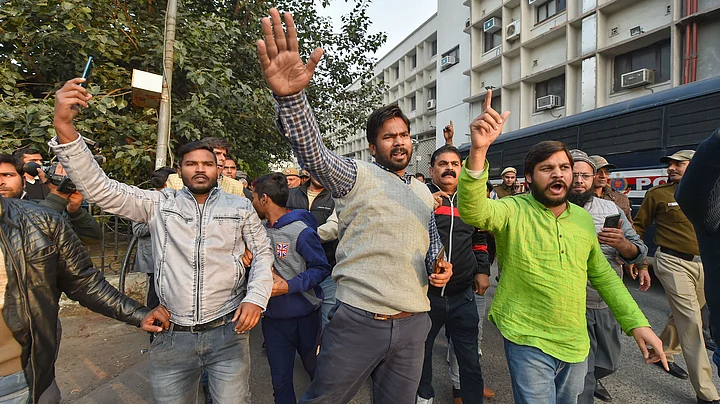The Rampur district administration in Uttar Pradesh has become the first to initiate the process of recovering the price of damage to government property, including police motorcycles, barrier, dandas, reported The Indian Express, on Wednesday, 25 December.
In identical notices to 28 people, issued a day earlier, the administration held them responsible for acts of violence and sought explanation on why recovery should “not be made” for damage worth Rs 14.86 lakh.
Speaking to the newspaper, the Rampur District Magistrate Aunjaneya Kumar Singh said:
“We issued notices to 28 persons probed by the police during investigation. Police submitted evidences against them. They (28) have been asked to submit their response within a week, otherwise the process of recovery against them will be started. Of the 28, a few have been arrested while raids are on to trace others. An accused and his family can submit evidence to support their plea that they have been wrongly booked in the case.”
This comes days after UP Chief Minister Yogi Adityanath warned that “revenge will be taken” against those who damage public property.
The report said that notices were issued following a government order based on direction from Allahabad High Court and on the basis of information from the local police.
Is the Notice Issued Legal?
According to legal experts, the liability can arise only after the accused are convicted of the crime.
While the SC had adopted guidelines for such events in the 2009 'In Re Destruction of Private & Public Properties vs State of AP' case, the liability arises only after the high court passes the order.
“As you can see from these guidelines, taken from the Thomas-Nariman Committee Report, there is no provision for asking mere accused persons to pay. Liability only arises after a determination of a nexus between the damage and the person. HC has to pass order after hearing parties.”Vakasha Sachdev, The Quint’s Legal Editor
The Crucial Allahabad HC Verdict
In the notice, the government has cited Allahabad HC order in the Mohammed Shujauddin vs State of UP case. However, the directions apply to only those cases where there is damage to public property during an agitation/procession “called at the invitation or instance of a political party, or a sitting or former people's representative.”
The court directions says that damages can be recovered from the political parties or persons, not random citizens.
(At The Quint, we question everything. Play an active role in shaping our journalism by becoming a member today.)
